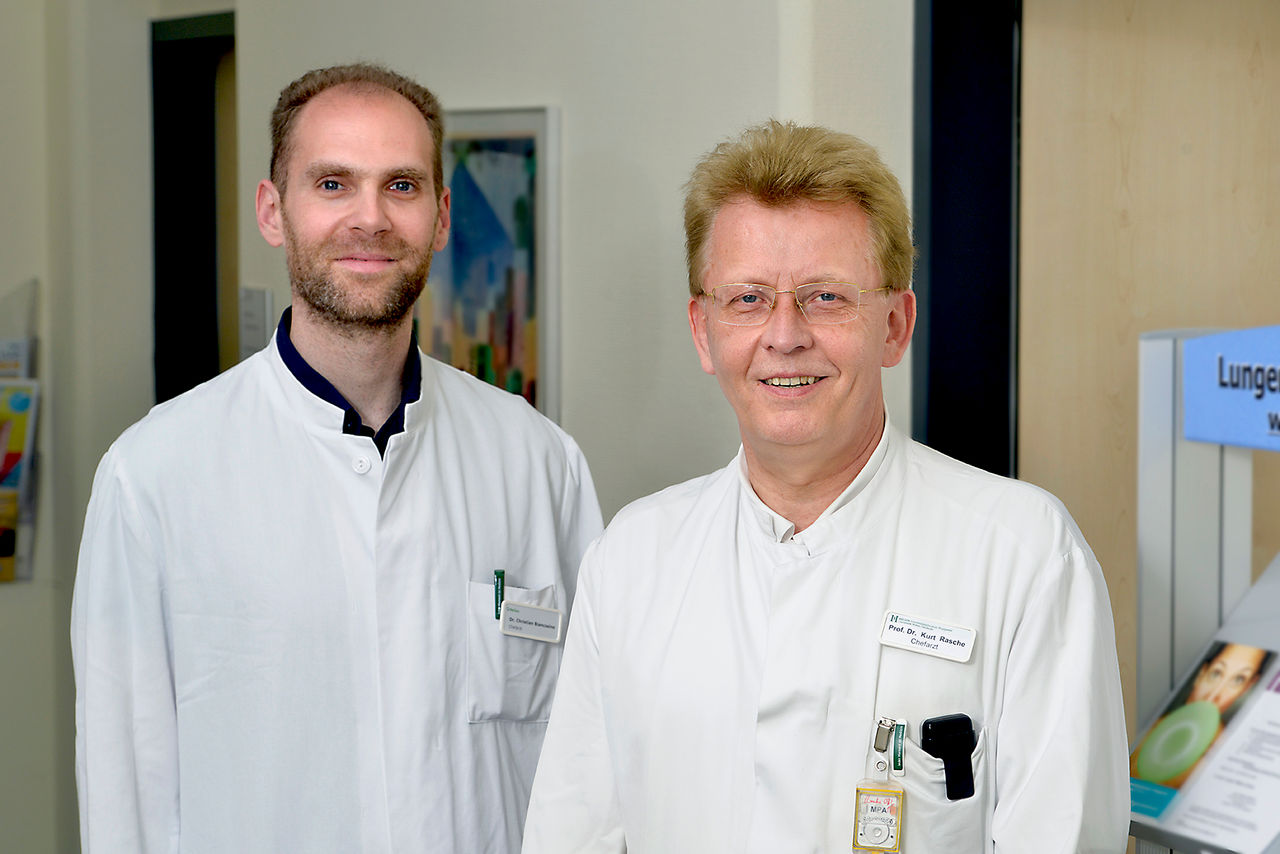
Improved Treatment Methods for Lung Cancer: Immunotherapy and Targeted Therapy
With immunotherapy and targeted therapy, better treatment options for lung cancer have emerged. These therapies are available at Helios Klinikum Emil von Behring.
To date, chemotherapy and radiotherapy have been the most common treatment options for lung cancer. With immunotherapy and targeted therapy, more individualized and patient-specific treatment options have been available for a few years. These are generally better tolerated, have fewer side effects and enable longer survival. The prerequisite for this is modern diagnostic methods such as molecular genetic testing, which can detect specific molecular changes, so-called mutations, in tumor tissue or blood.
In tissue diagnostics at Helios Klinikum Emil von Behring, under the medical direction of Prof. Dr. Thomas Mairinger, this gene analysis for tumors has already been taking place as a routine procedure since 2017. Together with the Heckeshorn Lung Clinic, an optimal workflow was developed with which a molecular pathological finding of the tumor tissue is already available after five days and a therapy recommendation can be made. For patients with lung cancer, this shortens the stressful period of uncertainty and they receive an individual therapy plan particularly quickly, which enables better survival with a better quality of life.
What does it actually mean ...
... cancer immunotherapy:
Immunotherapies are all methods that use the body's own immune system to fight cancer. The goal is to specifically circumvent the mutations and "evasion strategies" of the cancer cells and to direct the body's own defenses directly at the cancer cells in order to strengthen existing defense mechanisms of the body.
... targeted cancer therapy:
Targeted cancer therapy is treatment with targeted drugs that target characteristics of cancer cells that are important for tumor growth. They target biological characteristics (bio-markers) of the tumor. The decision whether to consider this therapy depends, among other things, on the type of tumor, the stage of the disease and the biological characteristics of the cancer cells.


